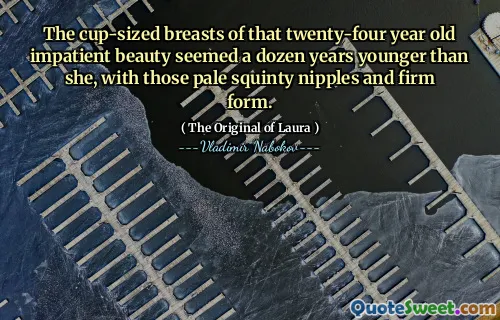You couldn't get more original than Laura. Laura. Yes, she was an original, all right. One of a kind. Did they break her mold or what, pal? Or...or did it ? Still, Laura. The one and the only. Such a plain name for a unique cutie. But perhaps my acuity is not without its problems. I ruin everything: a stupid story to be tapped out on my tomb's stone. I ruined even Laura. And an original ruin is rare. Just ask the archaeologist, Egypt, again? Just ask me, Laura, again? and we'll both respond: Yes, again and again. And again.
In "The Original of Laura" by Vladimir Nabokov, the character Laura is celebrated as an extraordinary and unique individual, emphasized by the repetitive use of her name. The narrator reflects on her singularity, questioning whether she was so remarkable that they had to break the mold after creating her. This admiration is tinged with a sense of personal failure, as the narrator feels responsible for ruining their connection with Laura, ultimately labeling this loss as an 'original ruin.'
The text captures the complexity of the narrator's feelings, blending admiration with regret. The repetition of "again" underlines a yearning for the past and a desire to reconnect with Laura, despite acknowledging how personal shortcomings may have led to her downfall. This poignant exploration of identity and loss illustrates the deep impact Laura had on the narrator, reinforcing her status as an unforgettable figure within their life.






